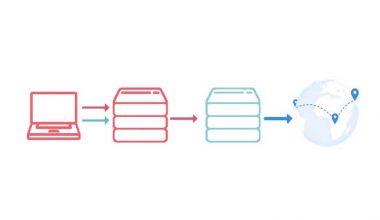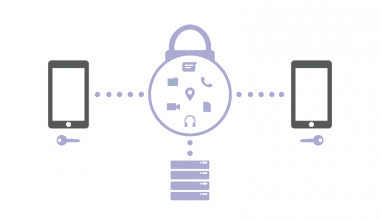Do you know whether your IP address is a dynamic IP address or a static one? Most Internet users are using dynamic IP addresses because it would cause a great wast of IP address resources if each user is assigned a static IP. The IP address is a very important network resource.
What is an IP?
An IP address refers to an Internet Protocol address.
The IP address is a uniform address format provided by the IP protocol, which assigns a logical address to every network and host on the Internet to mask physical address differences.
To put it simply, an IP address to your computer is a phone number to your phone. Without a phone number, you can’t make phone calls. Similarly, your computer can’t connect to the Internet without an IP address.
Each computer, Tablet, Smartphone and Internet-enabled device has its own IP address which consists of numbers and periods.
The differences between dynamic IP and static IP
There are two types of IP addresses: static and dynamic. Dynamic IP addresses are opposite to static IP addresses.
Dynamic means that each time you visit the Internet, you will be assigned an IP address. While static means that you are assigned a fixed IP address and use the same address every time you connect to the Internet.
Usually, a user gets a dynamic IP address automatically after dialing up the ISP’s host each time, which is of course not arbitrary, but an address in the legal range of the network ID and host ID applied by the ISP. A dynamic IP address changes each time a device is connected to the Internet, but the IP address remains the same for each connection.
The DHCP server assigns a dynamic IP address when the device attempts to connect to the Internet. Dynamic IP addresses can be different every time you connect to the Internet. While a static IP address is distributed by the ISP and a static IP user can connect to the Internet without obtaining an IP address.
In conclusion, the main difference between static and dynamic IP addresses is that static IP addresses are fixed addresses manually assigned to different devices by network administrators, while dynamic IP addresses are automatically assigned to devices by DHCP servers.
The impact of dynamic and static IP addresses on Internet speed
The Internet speed that an ISP offers to each user is not limited by the IP address, but the bandwidth provided by the ISP. For example, if you get a higher bandwidth from the ISP than your neighbor, you will surf the Internet at a faster speed than your neighbor even if both of you use static IP addresses. Thus, we can see that dynamic and static IP addresses have no impact on your Internet speed.
Dynamic IP or Static IP
Because the IP address resource is very precious, the majority of users are using dynamic IP addresses. They get access to the Internet via Modem, ISDN, ADSL, wired broadband, community broadband and so on. They need to obtain an IP address when connecting to the Internet each time.

Of course, an Internet service provider (ISP) will give you a dynamic IP address because dynamic IP addresses are more cost-effective than static IP addresses. Your IP address (dynamic IP address) will be extracted from the address pool and assigned to you instead of an IP address (static IP address) that will always belong to you. After a few days, weeks or even months, the number will be put back to the pool and a new number will be assigned to you.
While a static IP address won’t bring you the above problems. But you need to pay an extra fee for a static IP address.
Since Internet users are widely spread in the world and the time that they surf the Internet is not fixed, dynamic IP addresses are suitable for most of them. This type of IP address is also free of charge and easy to use. Dynamic IP is an ideal choice for most Internet users. While organizations that provide Internet services require static IP addresses so that users can get access to its services. Dynamic IP addresses and static IP addresses work together to make it easier to manage networks.
Conclusion
To sum up, dynamic IP addresses are good for most Internet users. You don’t need any configuration to use dynamic IP addresses. Besides, it doesn’t cost you extra money to use a dynamic IP address.
Sometimes, your IP address can reveal your personal details. Since dynamic IP addresses change frequently, they are also more secure than static IP addresses. After all, moving targets are harder to hit than stationary ones. You can also use a VPN to mask your IP address so that nobody else can track you via your IP address. RitaVPN is a good choice.






